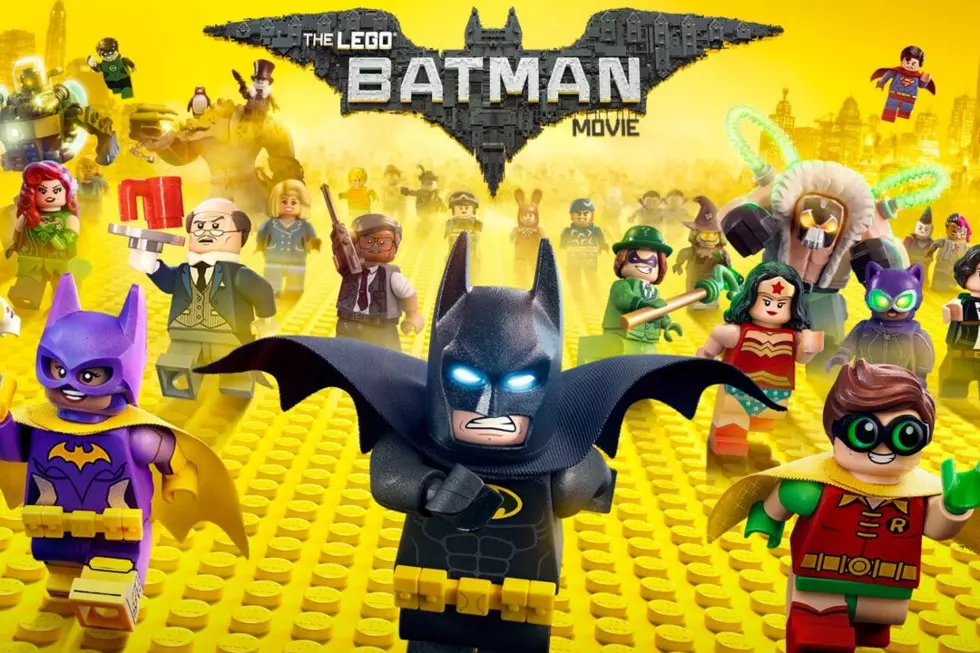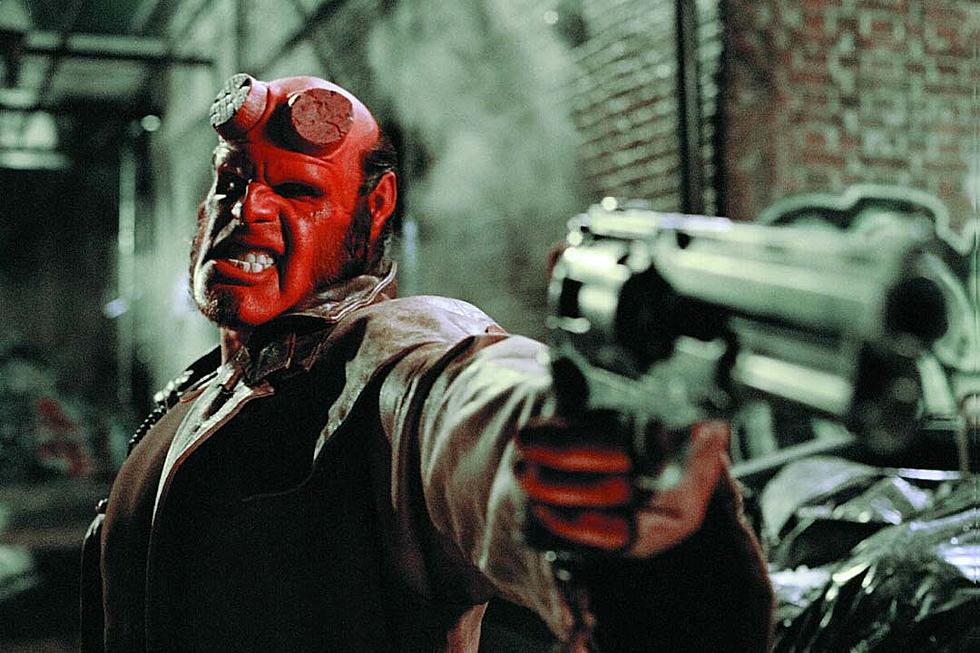
Ask Chris #303: Guilty Pleasures
Q: Do you think there's any value in defining something as a guilty pleasure? If so, what's your comic guilty pleasure? — @ykwilpodcast
A: On the one hand, no, I don't. The concept of a "guilty pleasure" has always struck me as a weird way to shield yourself from the knowledge that you like something that's not very good, and that's reductive to both your own tastes and the media that you're consuming. There's very little media in this world that's completely without value, and even when I can judge something to be completely and utterly worthless, that judgment comes from a context and a set of experiences and comparisons that are completely unique to me. Dismissing it as a guilty pleasure isn't just disingenuous, it ignores the idea that art can resonate with you despite its failing.
On the other hand, well, it's been 20 years and I still kinda love Gen 13.
Like I said: Individual context counts for a whole heck of a lot.
Generally speaking, though, the idea of a "guilty pleasure" isn't one that I subscribe to, and I think a lot of that has to do with the way I've been working for the past decade. I've been writing about comics, movies, and TV shows online pretty much every day for over eleven years --- and doing it as my day job for the past six.
On the one hand, that means that I have the benefit and the luxury of being an informed reader with a solid base of knowledge to work from, but the sheer pressure of deadlines means that I've had to be pretty up front about whatever it is that I'm enjoying.
One result of that is that I've written a lot of columns about weird old comics, episodes of Power Rangers, and stuff from the '90s that not a lot of people care about, if only because those are the things that interest me. But the flipside to that is that because I'm writing about them as a critic, I've had to look at them, well, critically. Just by nature of the job, I've got a lot of experience trying to go in deep on whatever it is I'm reading, and to put into words exactly what it is that appeals to me --- or what makes me hate it, as the case may be.
"It's a guilty pleasure" is a pretty easy conclusion to come to when you're looking at something that's not considered to be part of whatever canon you're used to dealing with --- and that you can even acknowledge yourself is not very good in the traditional sense --- but it's also not the kind of sentiment that's going to do you any favors when you're trying to hit your word count every day.
That might sound like a pretty self-serving attitude, and to be honest, it is, for more than one reason. If you're digging into the things that you like to try and figure out what there is that appeals to you, it's very easy to operate from a defensive premise, picking out the things that resonate and using them to justify your opinion and explain why this bad thing isn't actually bad, and everyone else is just wrong and possibly incapable of understanding why good things are good.
To say that I've done this myself is putting things pretty mildly. I am, after all, the one who declared that the almost universally reviled Batman and Robin is both objectively and obviously better than either of Tim Burton's Batman movies, and while that's a pretty hard position to defend, I'll stand by it as loudly and as often as I have the opportunity.
There is, after all, no one in Burton's movies doing a full-on sexy striptease while dressed as a purple gorilla.
But I'm getting off topic here. Point is, as ironic as it might sound coming from me, there is a difference between critical re-examination and just straight-up contrarianism, and I think that has a lot to do with the amount of work that goes into it.
Generally speaking, unless something hits you just right and resonates with you in a way that you feel passionate about, listing off the reasons that something sucks is usually a lot easier --- and, frankly, way more fun --- than talking about why something's good.
It's one of the reasons you don't see a lot of reviews for books like Usagi Yojimbo --- it's been so good for so long that you run out of ways to talk about how great it is, and its quality should be self-evident to anyone who reads it. All you really need someone like me to do is tell you it's out there, and the book does the heavy lifting for itself.
If you're going to dig into that stuff and really highlight how it works, what resonates, and the craftsmanship that goes into it, you're going to end up having a little more possessiveness of the work. If you go through the effort only to find out that it's widely considered to be bad --- or even if you go into it despite that conventional wisdom --- then you're bound to be a little more grumpy about it than you would be if you had that external validation.
See, the thing about the idea of a Guilty Pleasure is that it removes a lot of the nuance that you need for a critical examination. It comes from a very binary way of thinking, where you separate everything you experience into either Good or Bad without a lot of middle ground, and ends up being, by definition, a category for something Bad that you should feel bad about enjoying, or at the very least, that you feel like you shouldn't for whatever reason. I'm certainly as guilty of that binary thinking as anyone is --- especially when it comes to the things I don't like --- but I also don't really believe in qualifying your enjoyment in those terms.
I mean, look. If you tell me that your favorite comic book is Identity Crisis, I'm probably going to try to find a way to end that conversation as soon as I can, but I'm also going to be as suspect of your opinions if you say it's a flawless work of mature comic book storytelling as I would be if you said it's a guilty pleasure. All the latter means is that you're aware of its reputation.
Take, for example, what might be my most infamous "guilty pleasure": Tarot: Witch of the Black Rose.
It is not, in the traditional sense, a good comic book, but I read that thing for ten years and I can tell you right now that my enjoyment of it was in no way ironic. Even though it had far, far more than its share of flaws --- and even though those flaws did eventually get to the point where I quit reading it --- I looked forward to every issue, because it offered me something that I couldn't get anywhere else in comics: It would consistently show me something I had never seen before.
Admittedly, most of the time it would be something like this, The Greatest Piece Of Dialogue In Comics History...
... but to me, as a reader who reads so many comics and hates nothing as much as being bored by them, there's a lot of value in that. I'll poke fun at all day long --- and have --- but I can't really describe my enjoyment of that book as anything other than genuine, and I don't really feel guilty about buying it and wanting it to continue. Someone who values technique and storytelling over new ideas and surprises isn't going to have the same reaction to that book, and the thing is, neither of those opinions is invalidated by the other, even if mine is a little more difficult to defend.
The better way to express that idea, to me anyway, is to just acknowledge, that the things you like have flaws, for the simple reason that everything that you like has flaws. Trying to justify them in order to pull something out of Guilty Pleasure status and into Actually Good is a sucker's game, and it's easier, more honest, and more critically useful to examine the flaws and understand how they detract from the quality of the work.
But while I do think readers should engage with things critically and think about why they enjoy them and how things are constructed --- because it's the career that I've built my entire life around for over a decade --- I don't think it's incumbent on anyone to have to justify their likes and dislikes to anyone unless they're getting paid for it.
Because that's what "guilty pleasures" are. They're a justification, and a defensive one at that, that tries to circumvent judgment from other people. The thing is, judgment from other people, even people who are paid to give their opinions on things, is a pretty easy thing to ignore if you've got your reasons for connecting with something.
Like I said, I'm as judgmental as the next person, but if you like what you like, then my judgment isn't really something you need to worry about. I mean, at the end of the day, I'm still a dude who's bought every issue of Gen13.
Twice.
Ask Chris art by Erica Henderson. If you’ve got a question you’d like to see Chris tackle in a future column, just send it to @theisb on Twitter with the hashtag #AskChris.
More From ComicsAlliance









